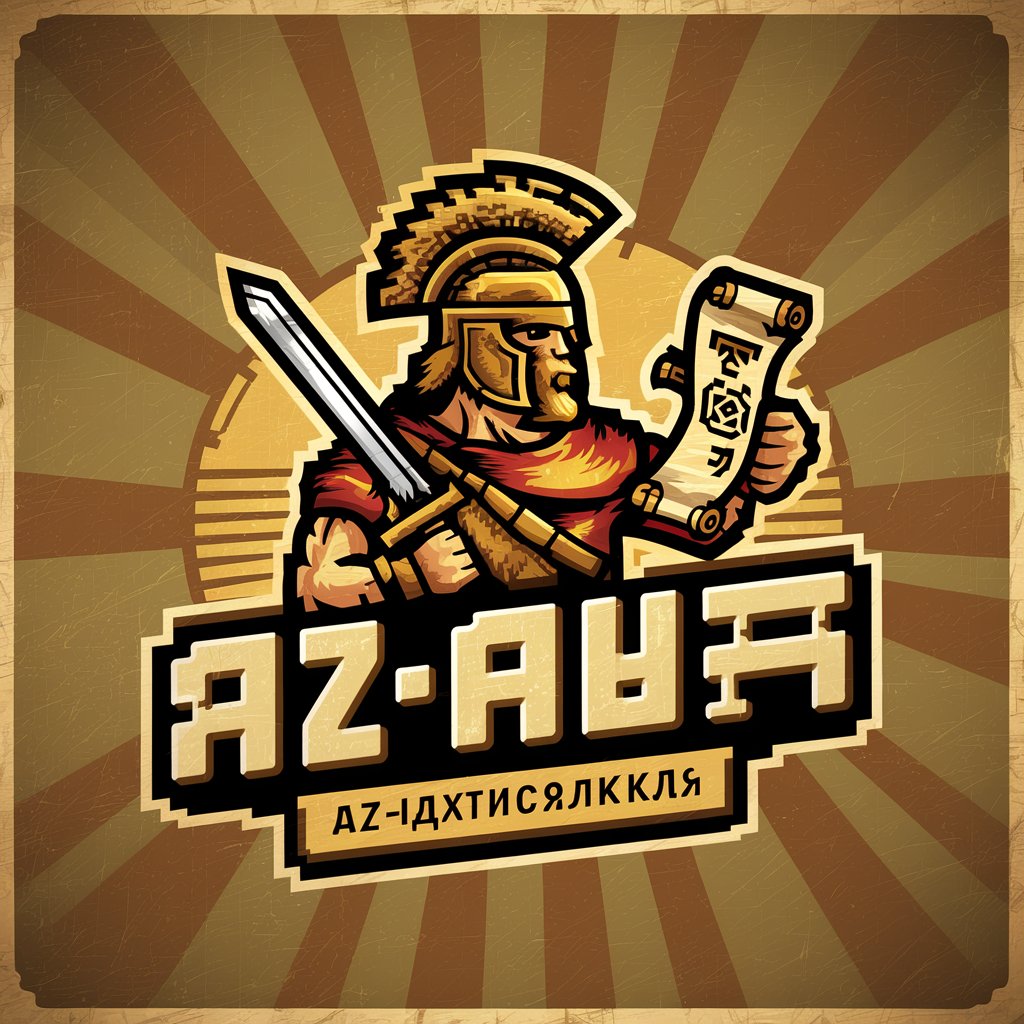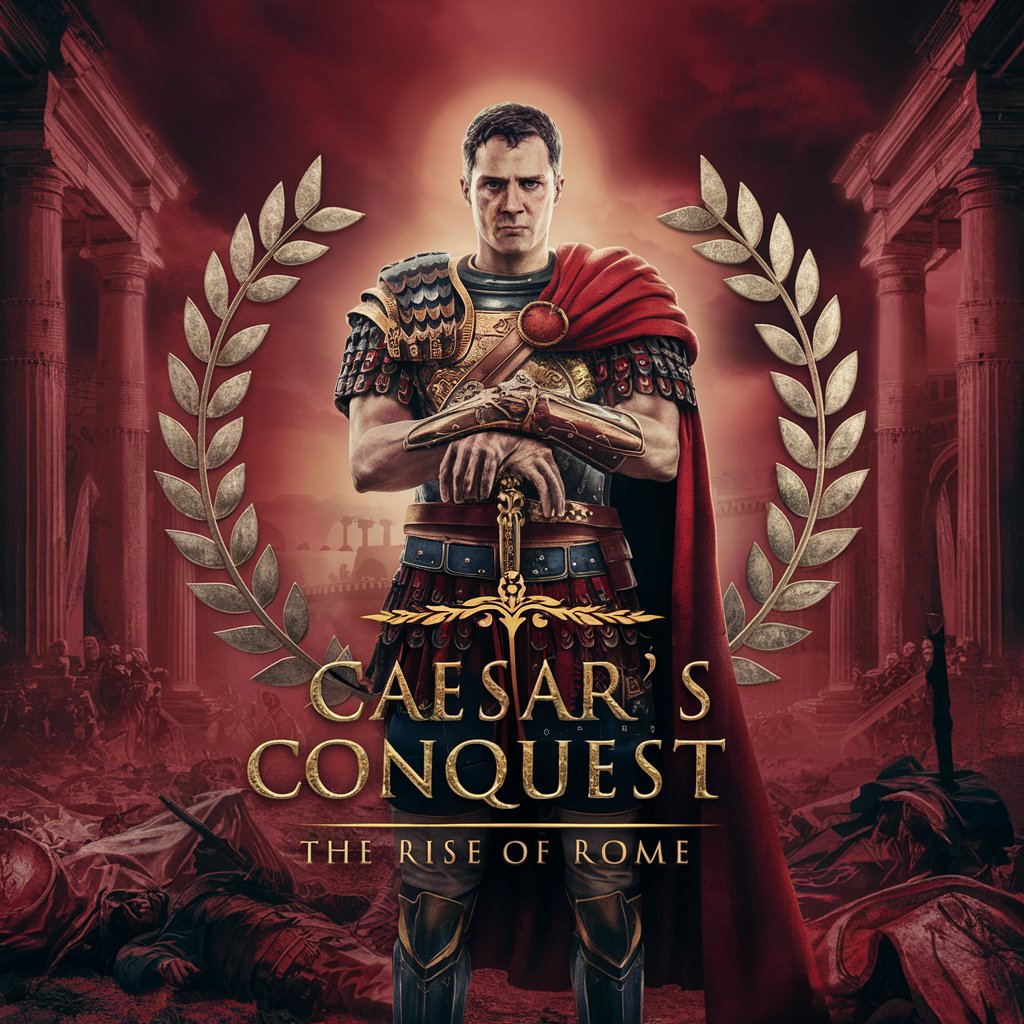5 GPTs for Historical Roleplay Powered by AI for Free of 2026
AI GPTs for Historical Roleplay are advanced artificial intelligence tools designed to simulate historical figures, events, and settings through conversational interfaces. Utilizing the power of Generative Pre-trained Transformers (GPTs), these tools offer immersive experiences by enabling users to engage in dialogue with AI representations of historical characters, explore historical scenarios, and receive information tailored to specific historical contexts. Their relevance lies in their ability to provide educational, entertainment, and research-oriented solutions that enhance the understanding and appreciation of history through interactive engagement.
Top 5 GPTs for Historical Roleplay are: The Last Viking,Azela 历史冒险,[謝罪ロープレ]織田信長の頭にお茶ぶっかけてしまって謝罪しなきゃいけなくなった件,Rome's Warrior Tale,Legionnaire Maximus
The Last Viking
Revive History with AI-Powered Tales

Azela 历史冒险
Relive History with AI-Powered Adventures

[謝罪ロープレ]織田信長の頭にお茶ぶっかけてしまって謝罪しなきゃいけなくなった件
Master Apologies with AI-Powered Nobunaga
![[謝罪ロープレ]織田信長の頭にお茶ぶっかけてしまって謝罪しなきゃいけなくなった件 in GPT Store](https://r2.erweima.ai/i/UaY-l4CbR3uEx4R2V3SrRA.png)
Rome's Warrior Tale
Shape your saga in Caesar's Rome.

Legionnaire Maximus
Strategize, Learn, Conquer: Rome Awaits

Essential Attributes of Historical Roleplay AI Tools
AI GPTs for Historical Roleplay boast a range of unique features that cater to the domain's specific needs. Key capabilities include adaptive learning, where the AI adjusts its responses based on user interactions, ensuring accurate and contextually relevant information. Special features such as language emulation allow these tools to mimic the dialects and speech patterns of historical periods, enhancing realism. Additionally, these GPTs support complex scenario simulations, enabling users to explore 'what-if' scenarios in historical contexts. Technical support extends to web searching for real-time information retrieval, image creation for visualizing historical figures or settings, and data analysis for uncovering historical trends and patterns.
Who Benefits from Historical Roleplay AI?
The primary beneficiaries of AI GPTs for Historical Roleplay include educators seeking innovative teaching tools, historians and researchers requiring dynamic ways to explore historical narratives, and enthusiasts looking for immersive historical experiences. These tools are designed to be accessible to novices without coding skills, offering user-friendly interfaces, while also providing robust customization options for developers and professionals in the field, enabling the creation of detailed historical simulations and analyses.
Try Our other AI GPTs tools for Free
Apology Simulation
Discover how AI GPTs for Apology Simulation can transform your approach to conflict resolution with empathetic, personalized apologies.
Physical Conditioning
Unlock personalized fitness and health guidance with AI GPTs for Physical Conditioning, your digital solution for achieving your wellness goals.
Diversity Advocacy
Discover how AI GPTs for Diversity Advocacy are revolutionizing DEI initiatives with tailored solutions for creating, analyzing, and promoting inclusive content across various platforms.
Creative STEAM
Discover how AI GPTs for Creative STEAM are revolutionizing tasks and projects in Science, Technology, Engineering, Arts, and Mathematics with tailored, innovative solutions.
Space Aesthetics
Discover the universe with AI GPTs for Space Aesthetics: your gateway to creating, exploring, and learning about the cosmos through advanced artificial intelligence.
Romantic Cosmos
Discover AI GPTs designed for the Romantic Cosmos: specialized tools blending romantic and cosmic themes with advanced AI technology to create, analyze, and visualize unique content.
Expanding Horizons with Historical Roleplay AI
AI GPTs for Historical Roleplay not only offer a novel approach to learning and exploring history but also signify a leap towards more interactive and engaging educational tools. Their ability to integrate with existing systems opens up new avenues for immersive historical research and education, making history more accessible and engaging for a wider audience. The user-friendly interfaces ensure that these advanced technologies are within reach of educators, students, and history enthusiasts alike.
Frequently Asked Questions
What exactly are AI GPTs for Historical Roleplay?
AI GPTs for Historical Roleplay are AI-driven platforms that simulate conversations and scenarios with historical figures or within historical settings, powered by advanced machine learning models.
Can these tools emulate specific historical languages or dialects?
Yes, many of these tools include features to mimic historical languages and dialects, enhancing the authenticity of the roleplay experience.
Are there customization options for more advanced users?
Absolutely. While accessible to beginners, these tools also offer advanced customization options for those with programming skills, allowing for the development of complex historical simulations.
How can educators utilize these tools in the classroom?
Educators can use these tools to create interactive learning experiences, where students engage directly with historical figures or scenarios, facilitating a deeper understanding of historical events and cultures.
Is it possible to integrate these AI tools with existing educational or research platforms?
Yes, many AI GPTs for Historical Roleplay are designed with integration capabilities, allowing them to be incorporated into existing platforms or workflows for enhanced educational or research purposes.
Do these AI tools require internet access?
While many features can be used offline, certain functionalities like web searching for real-time information retrieval do require internet access.
Can these tools simulate hypothetical historical scenarios?
Yes, one of the core capabilities includes the simulation of 'what-if' scenarios, enabling users to explore alternative historical outcomes.
Are there any privacy concerns with using these AI tools?
Privacy is a priority for developers of these tools. User interactions are typically processed with a focus on data security and compliance with privacy regulations.